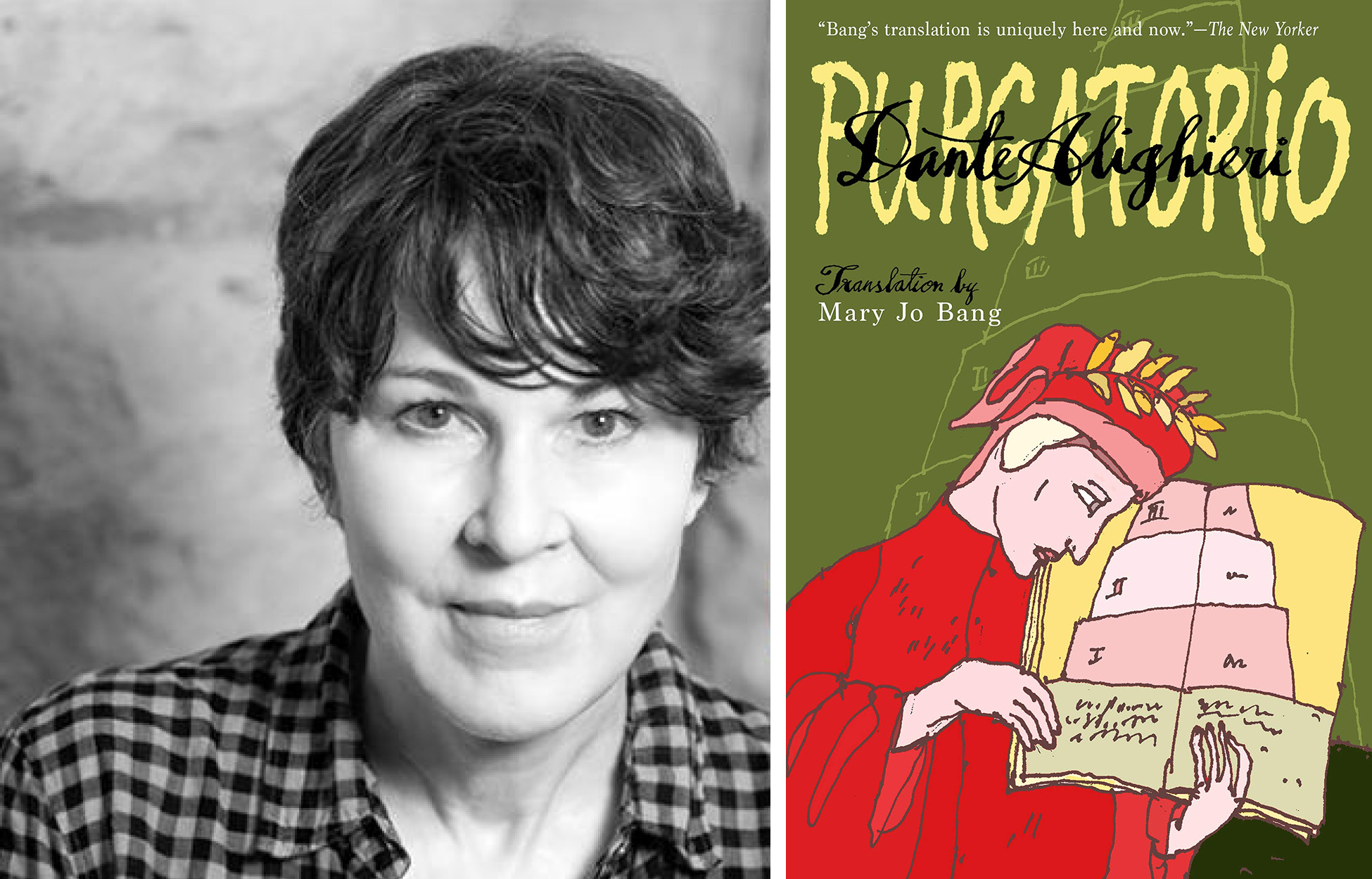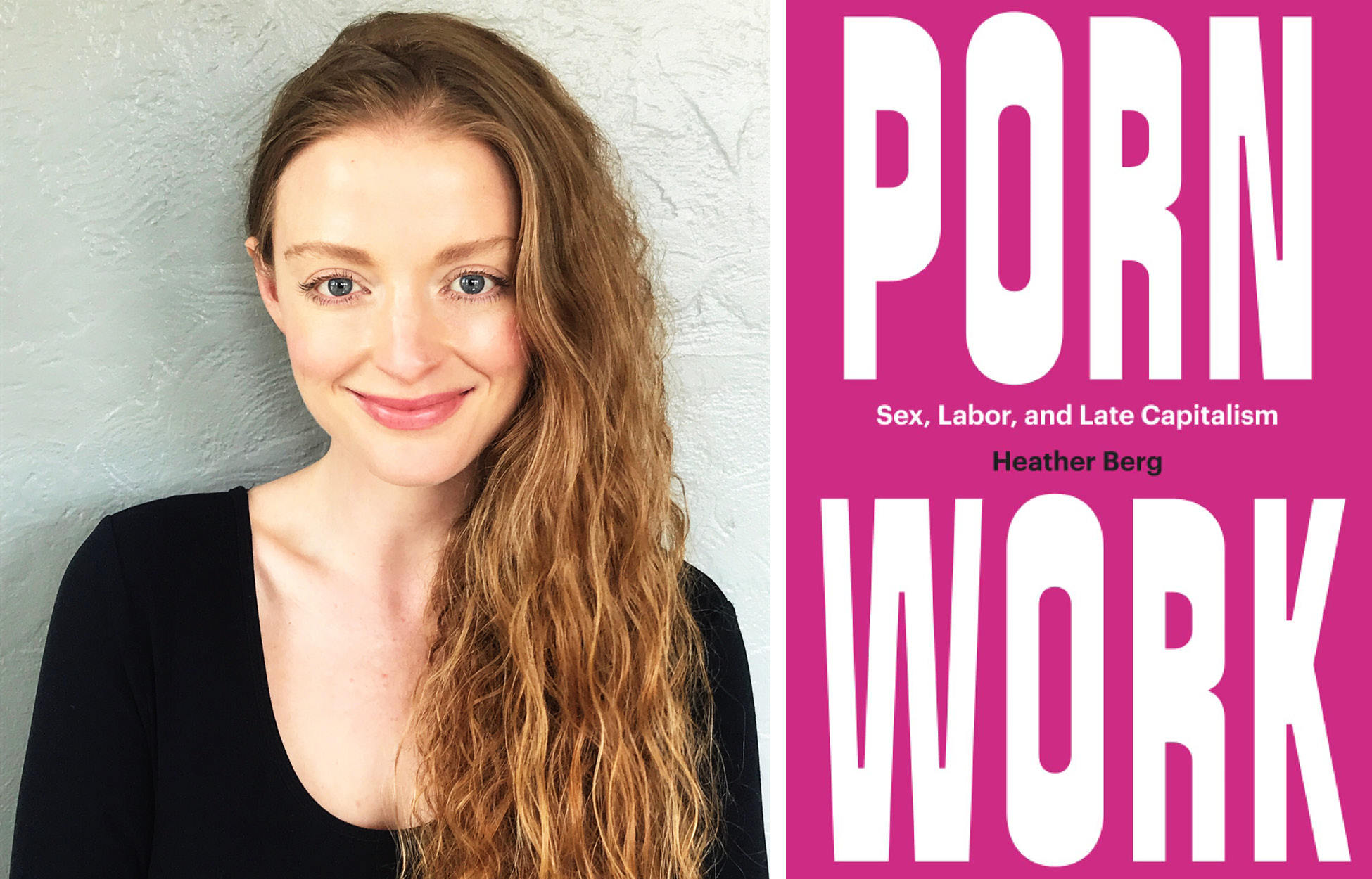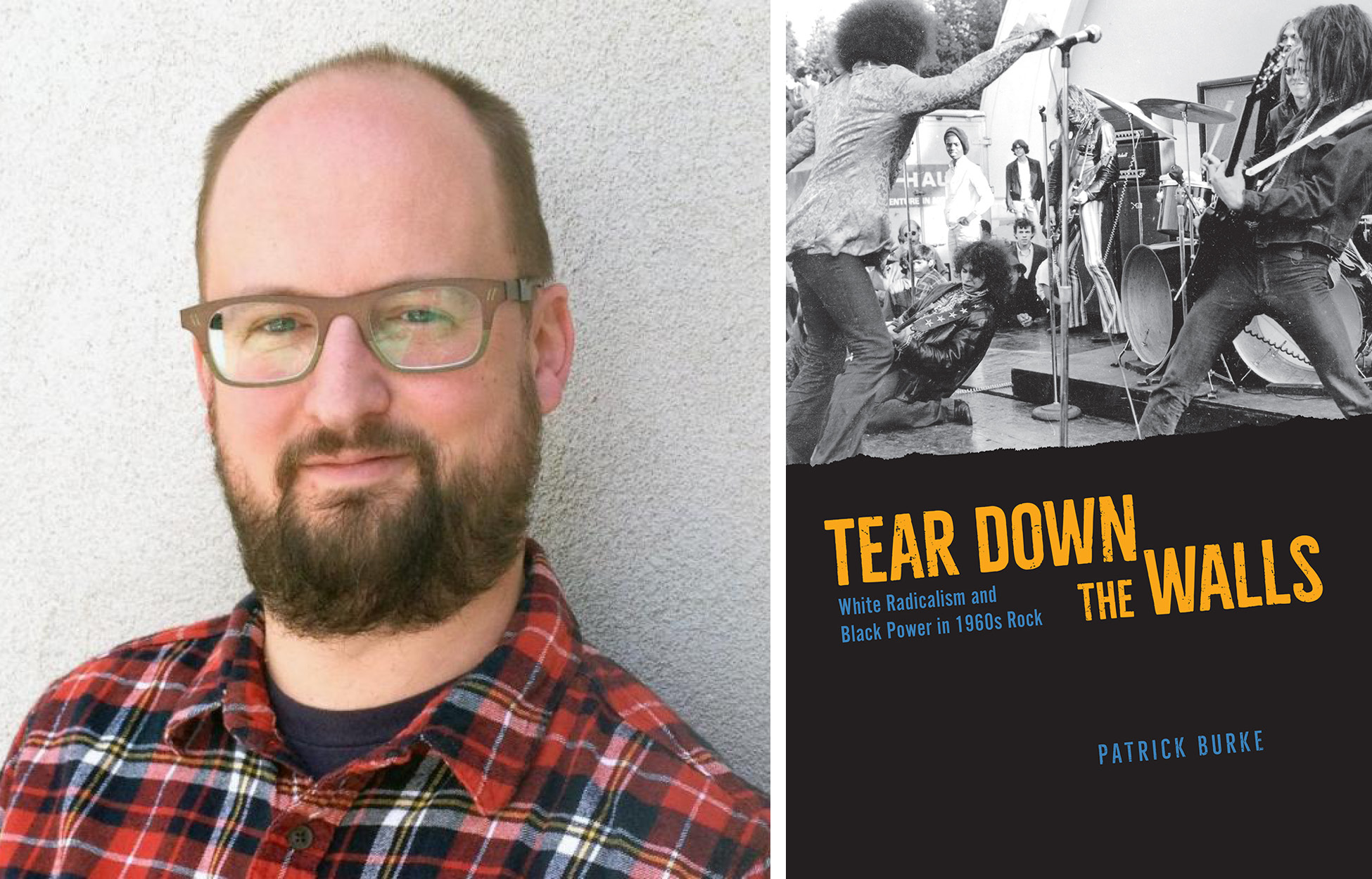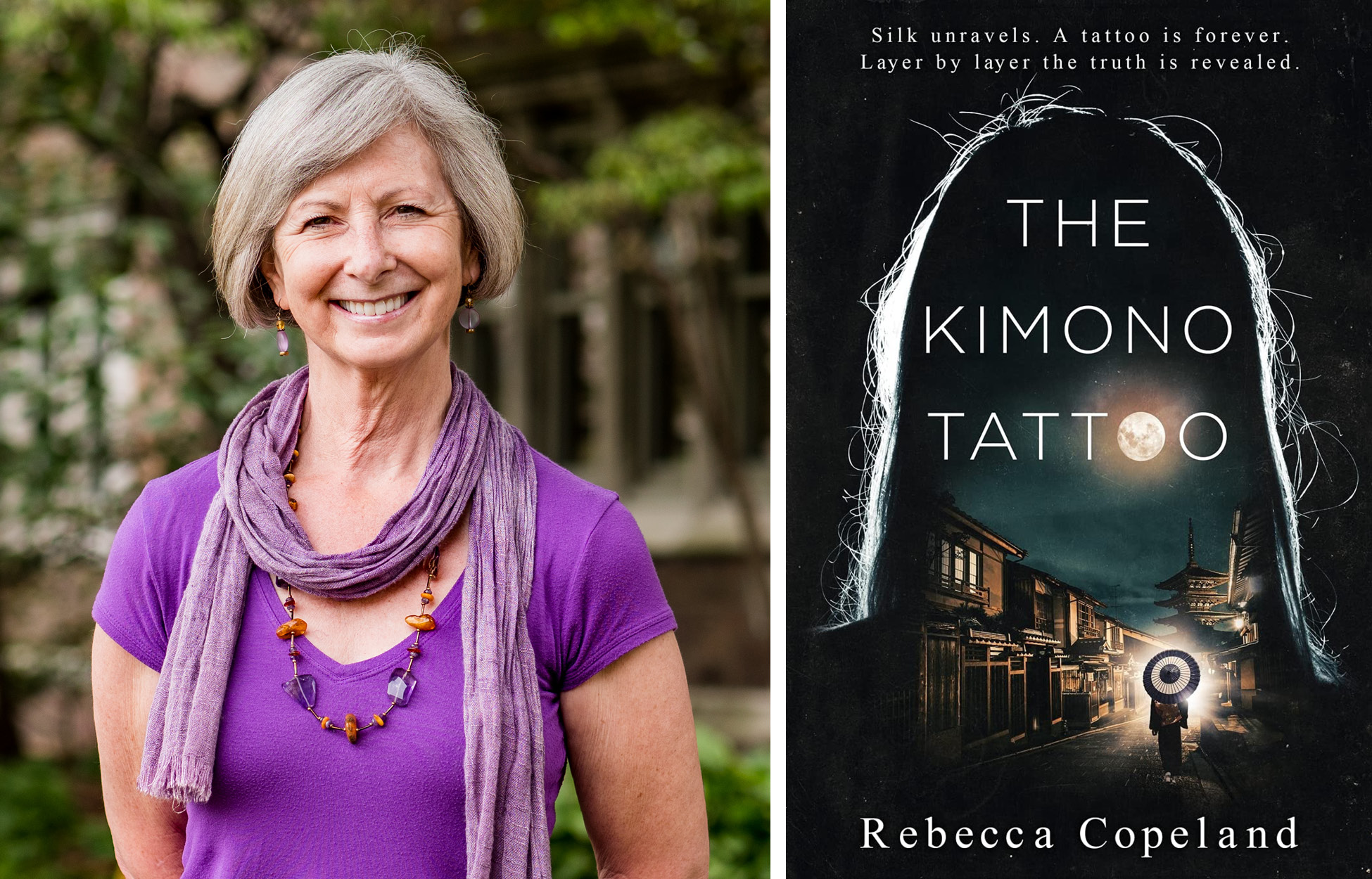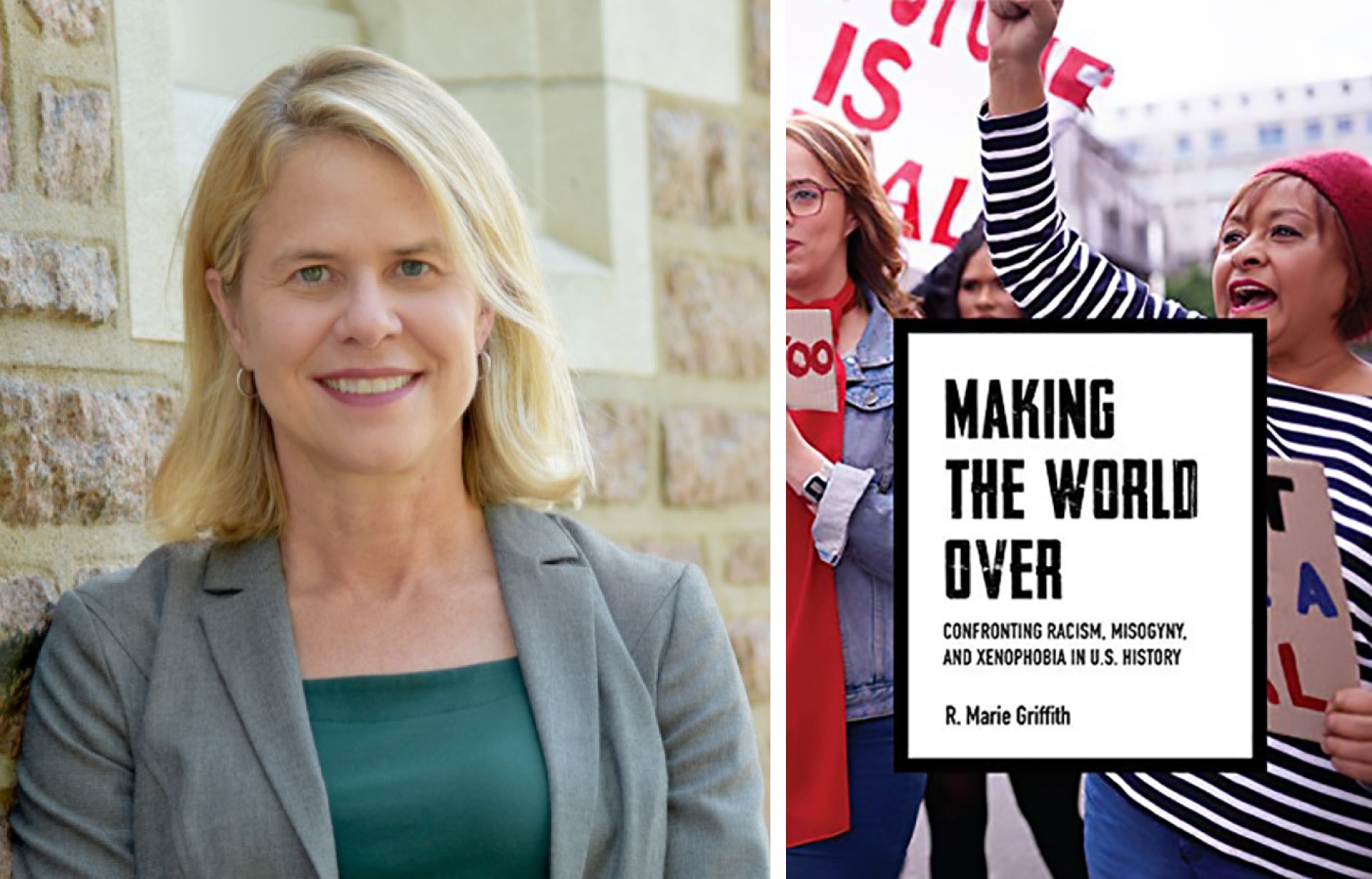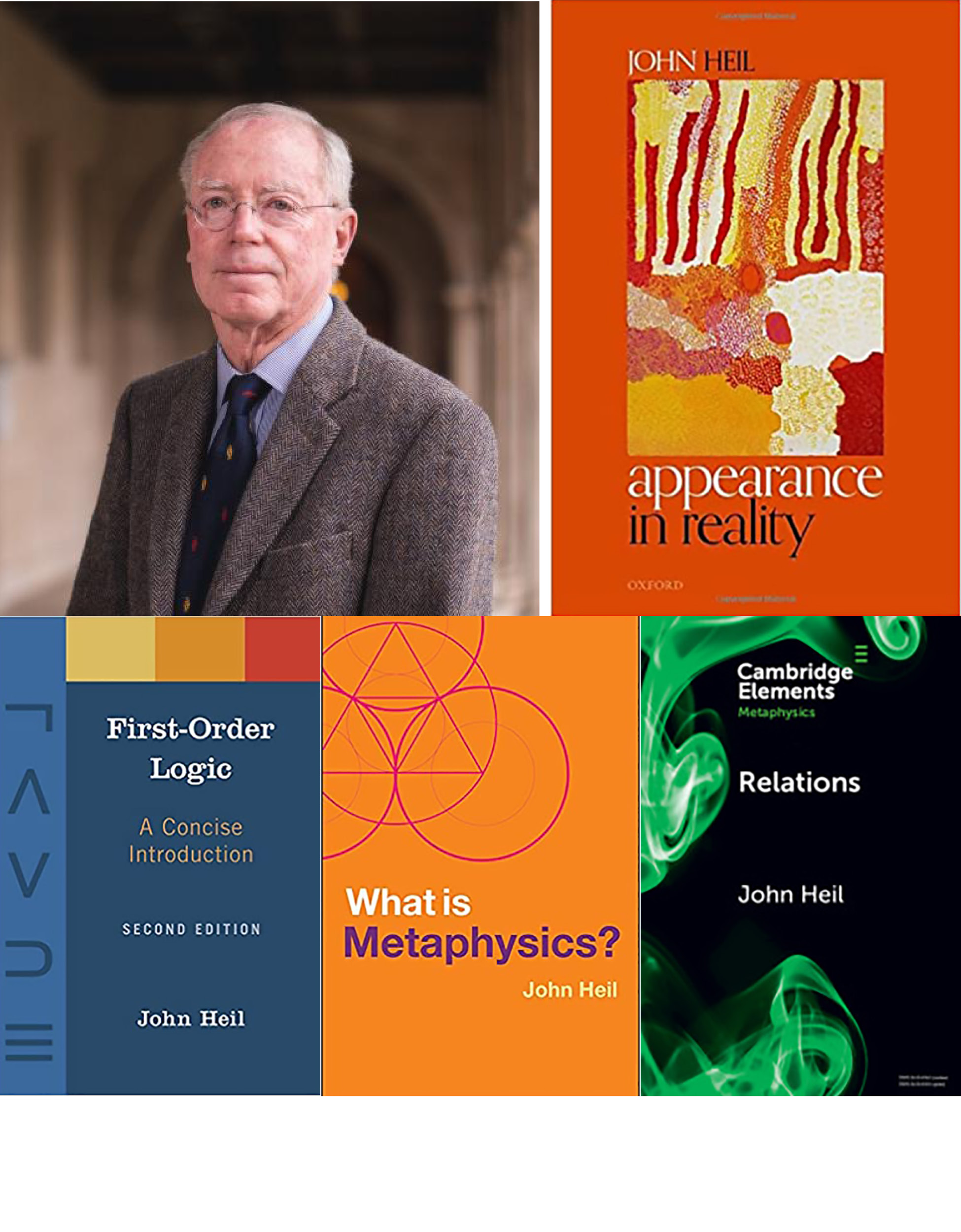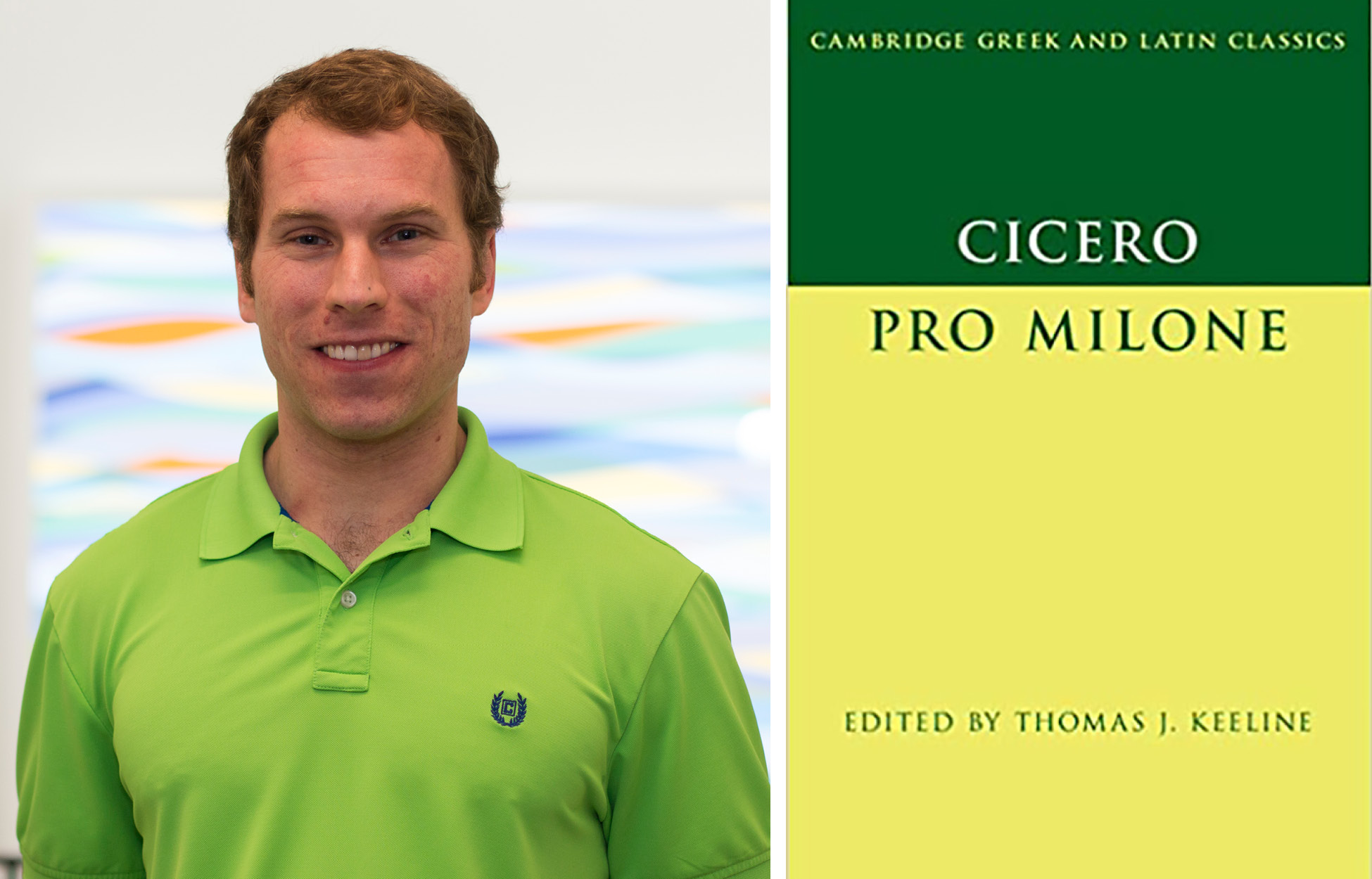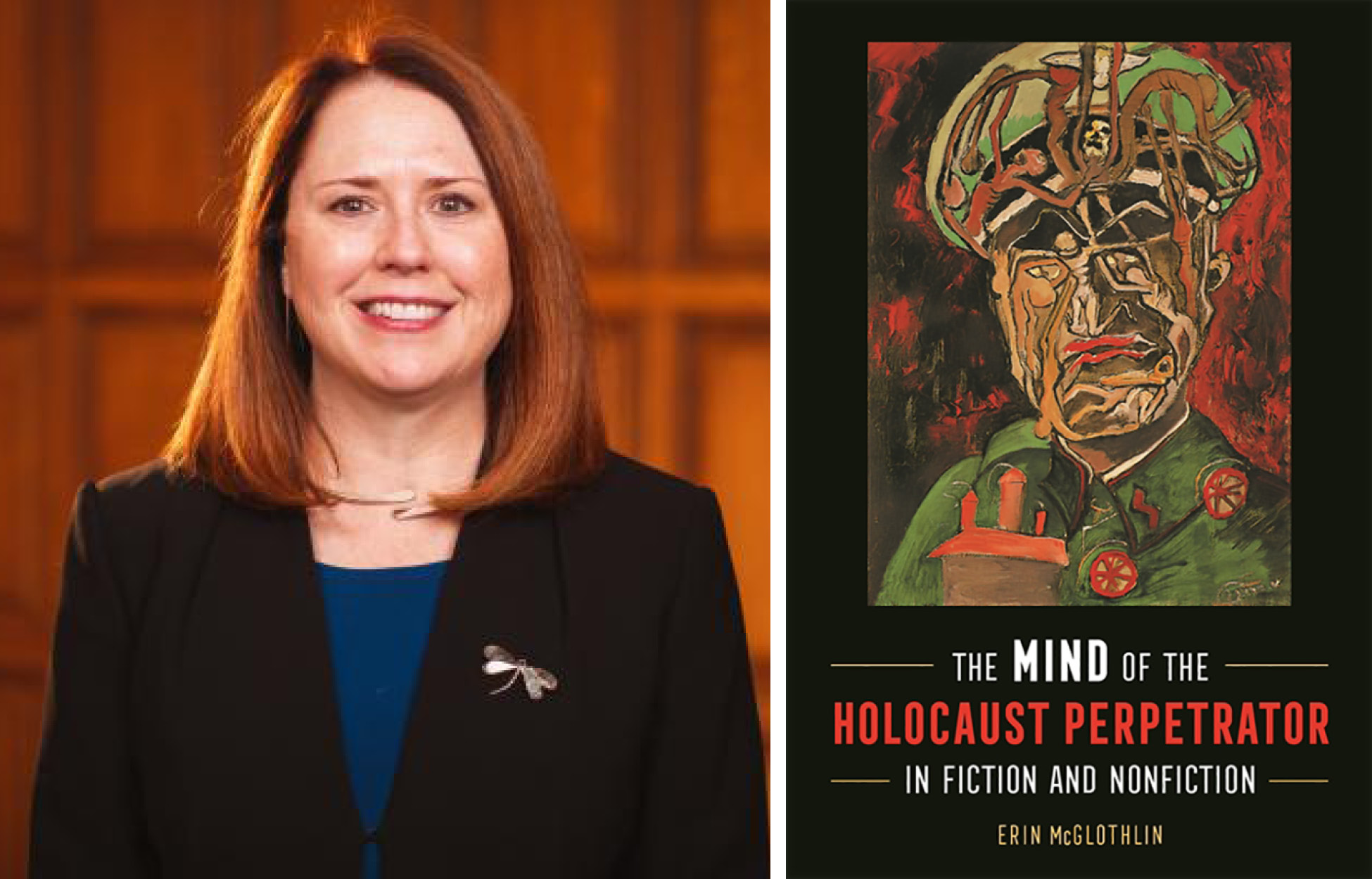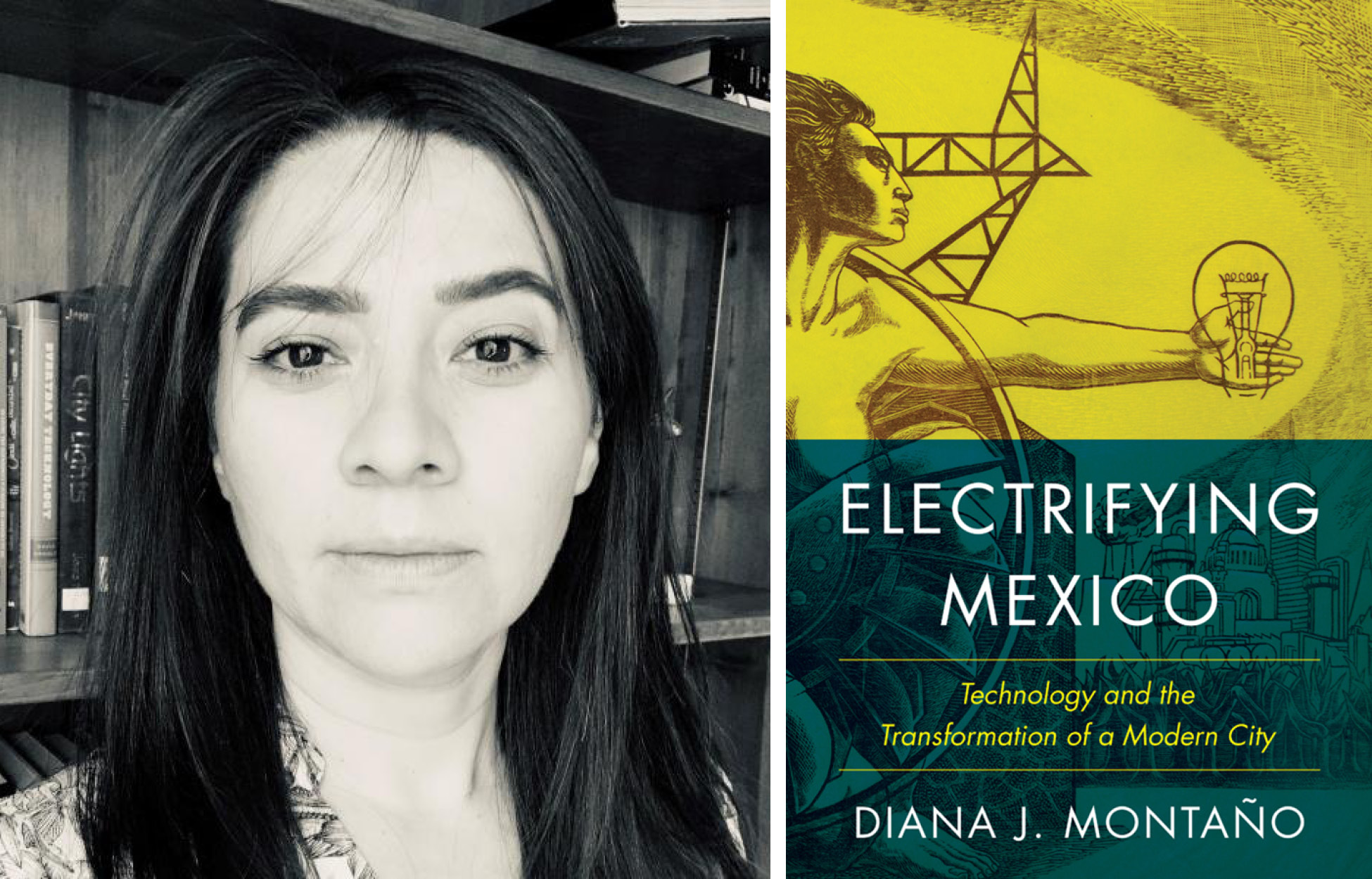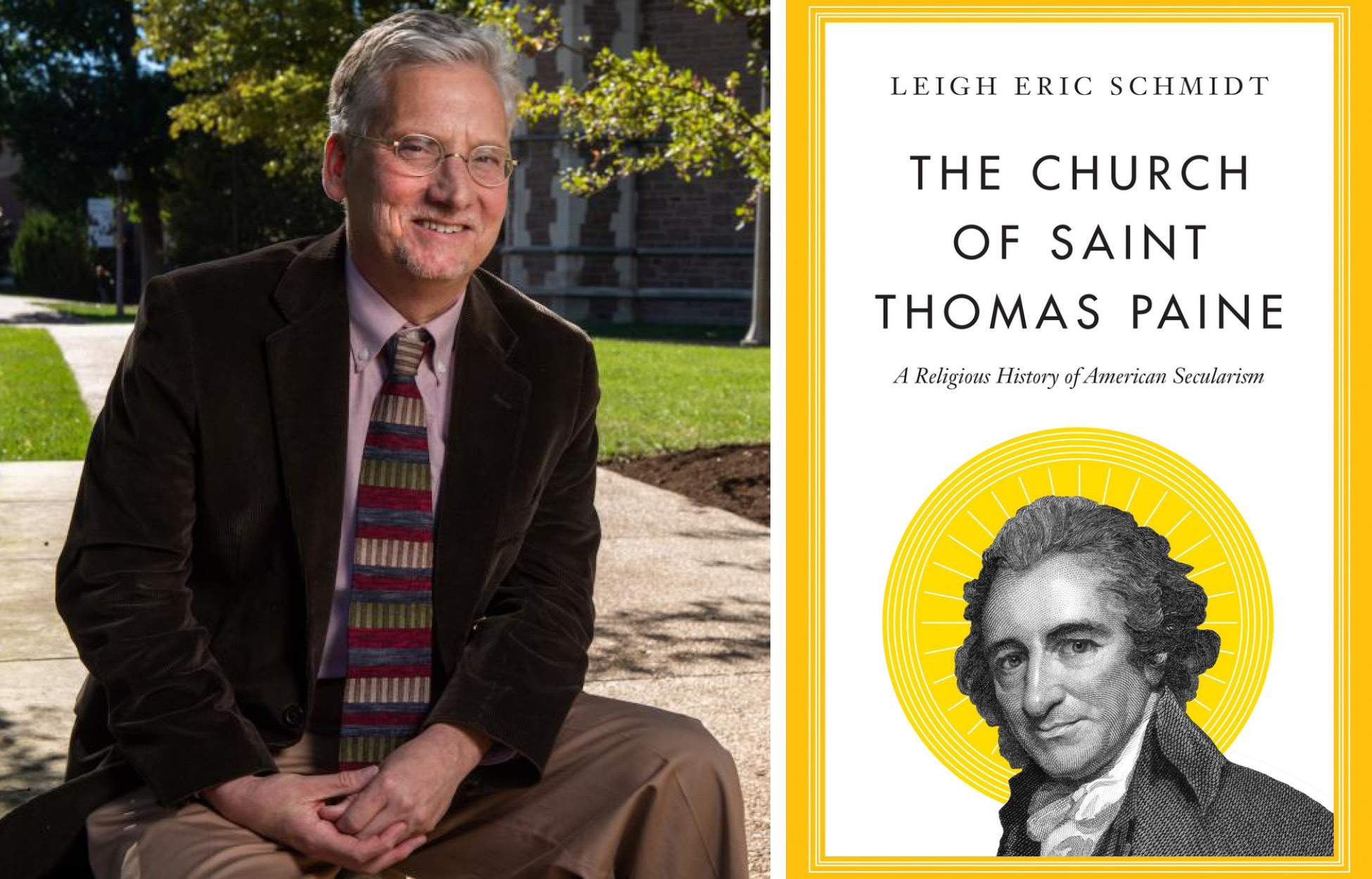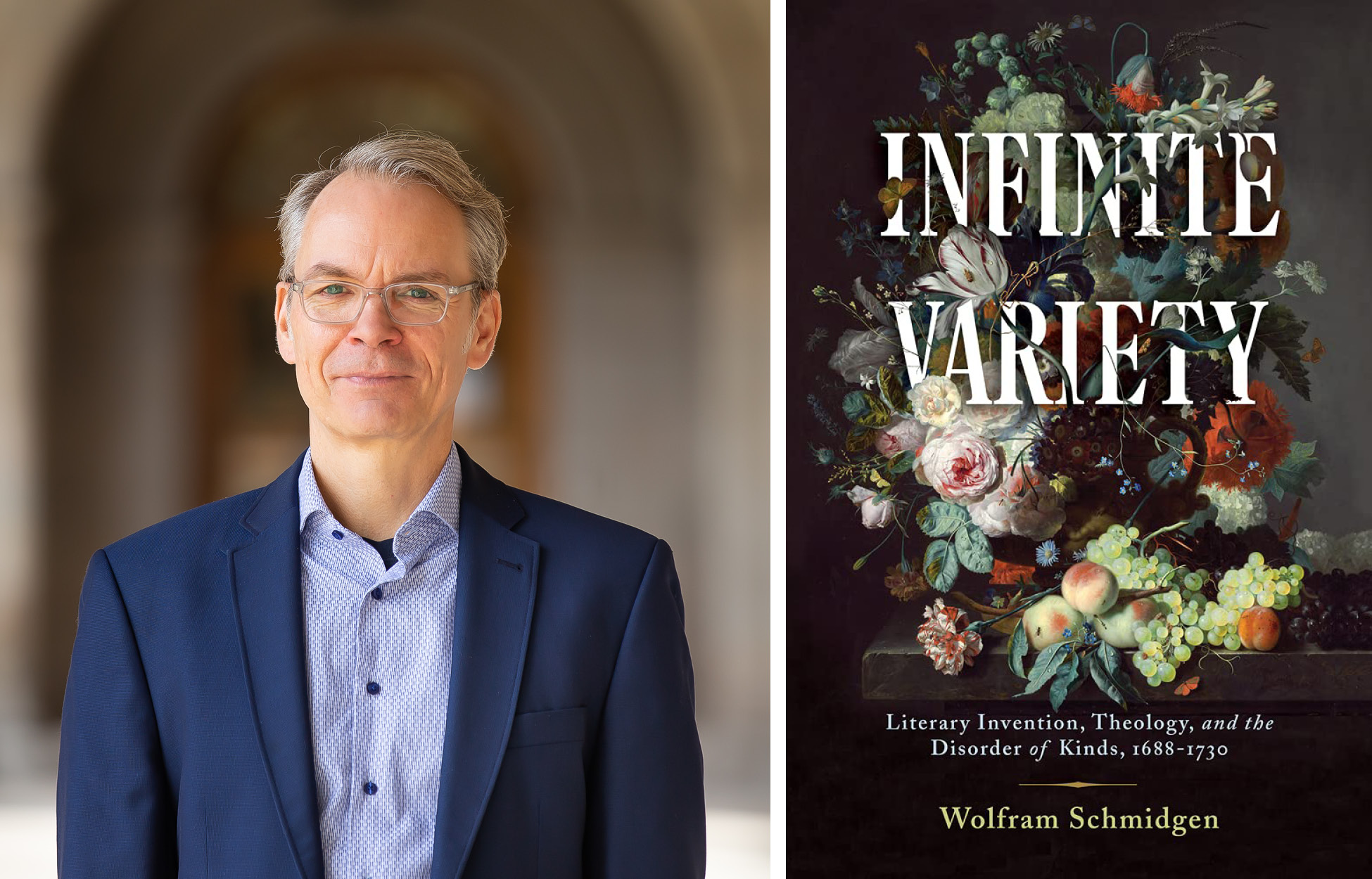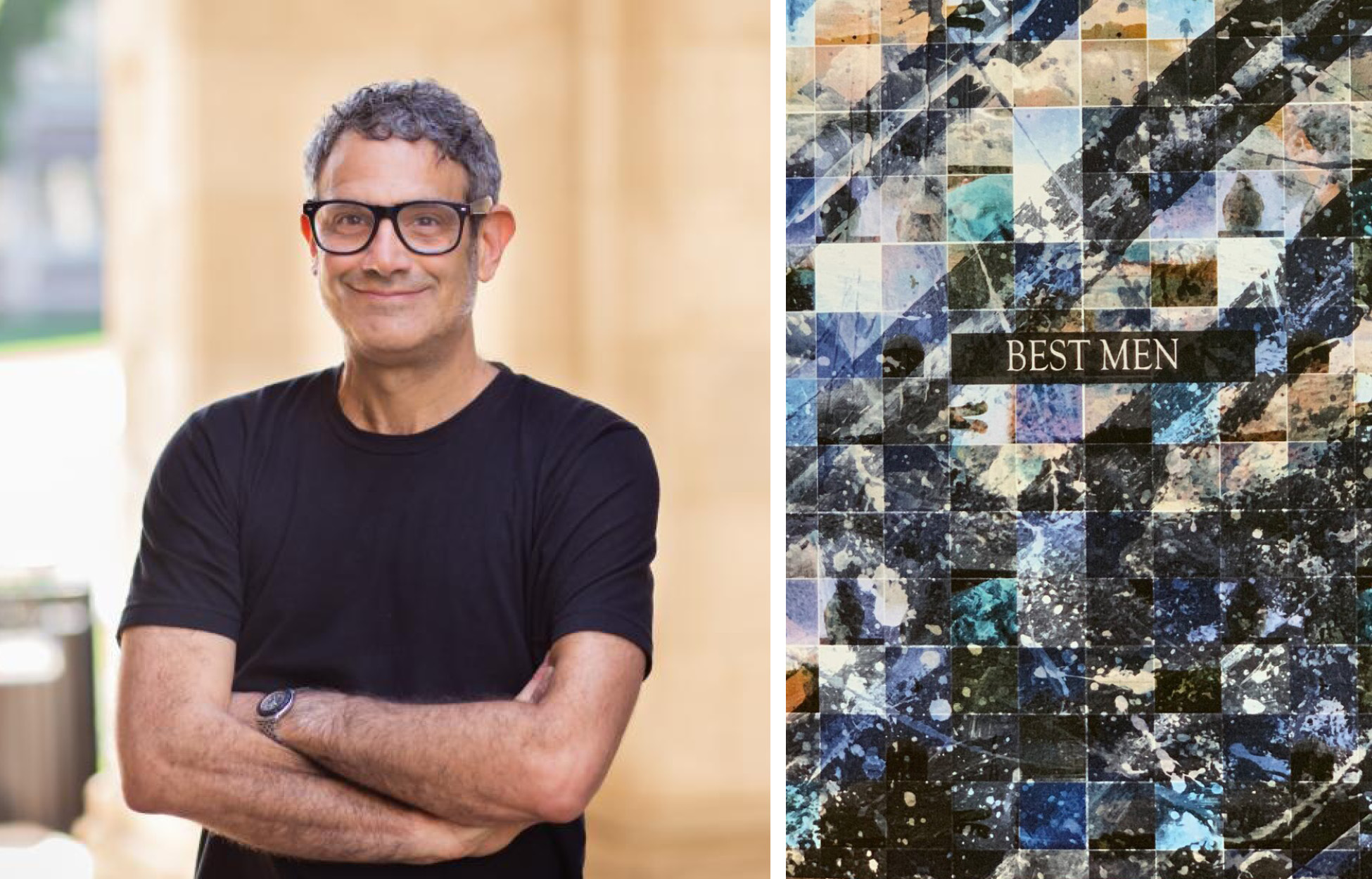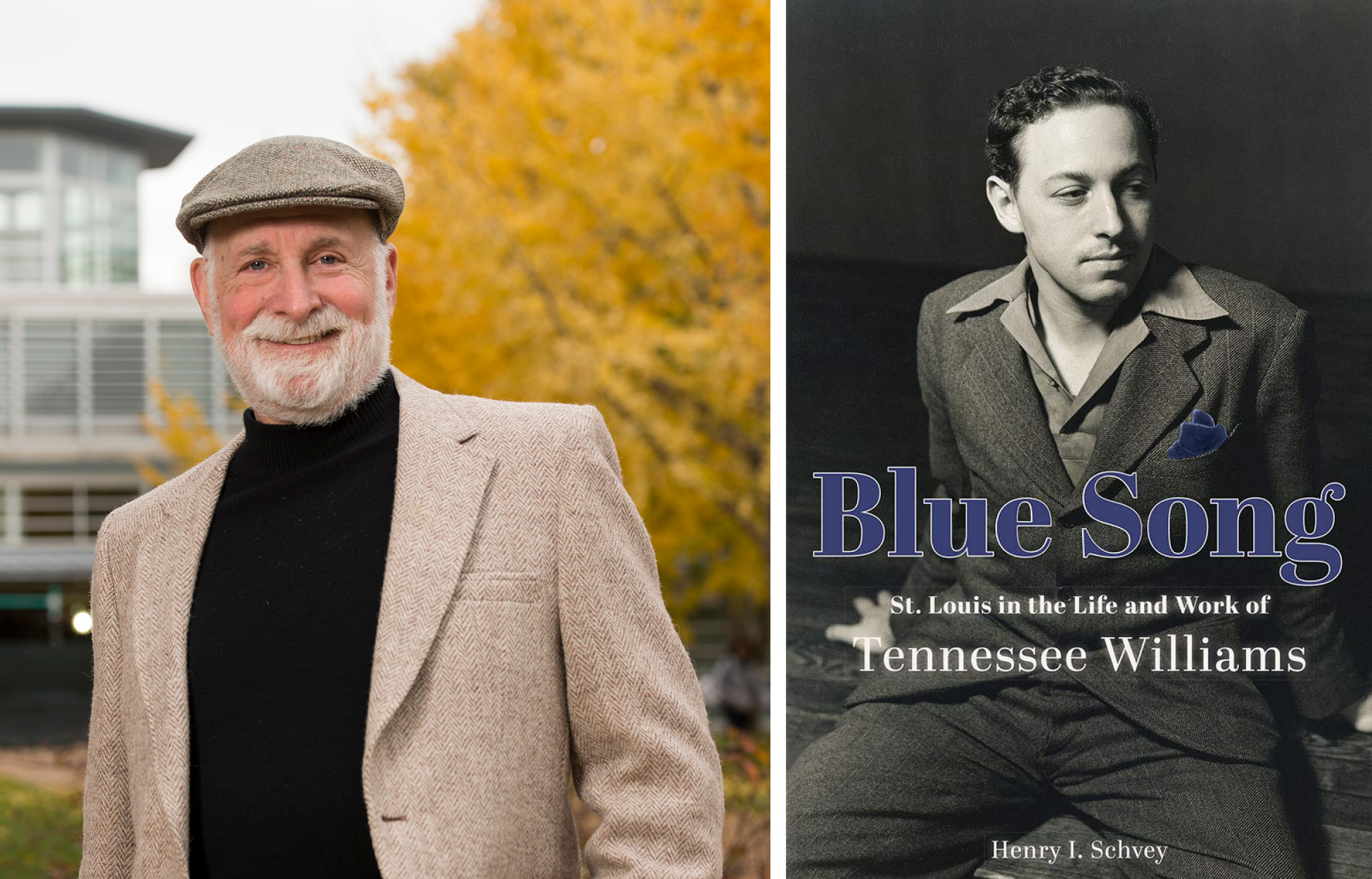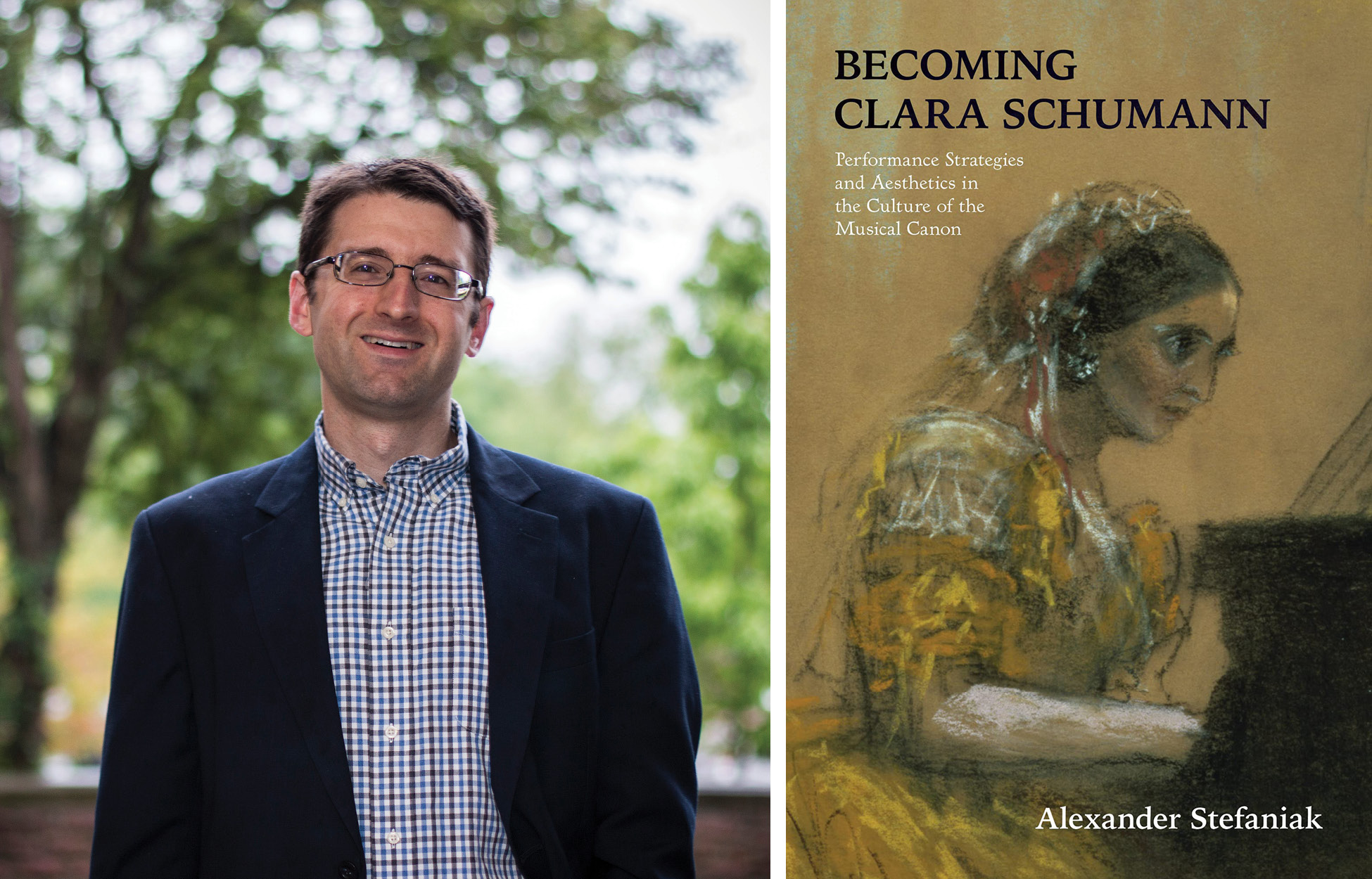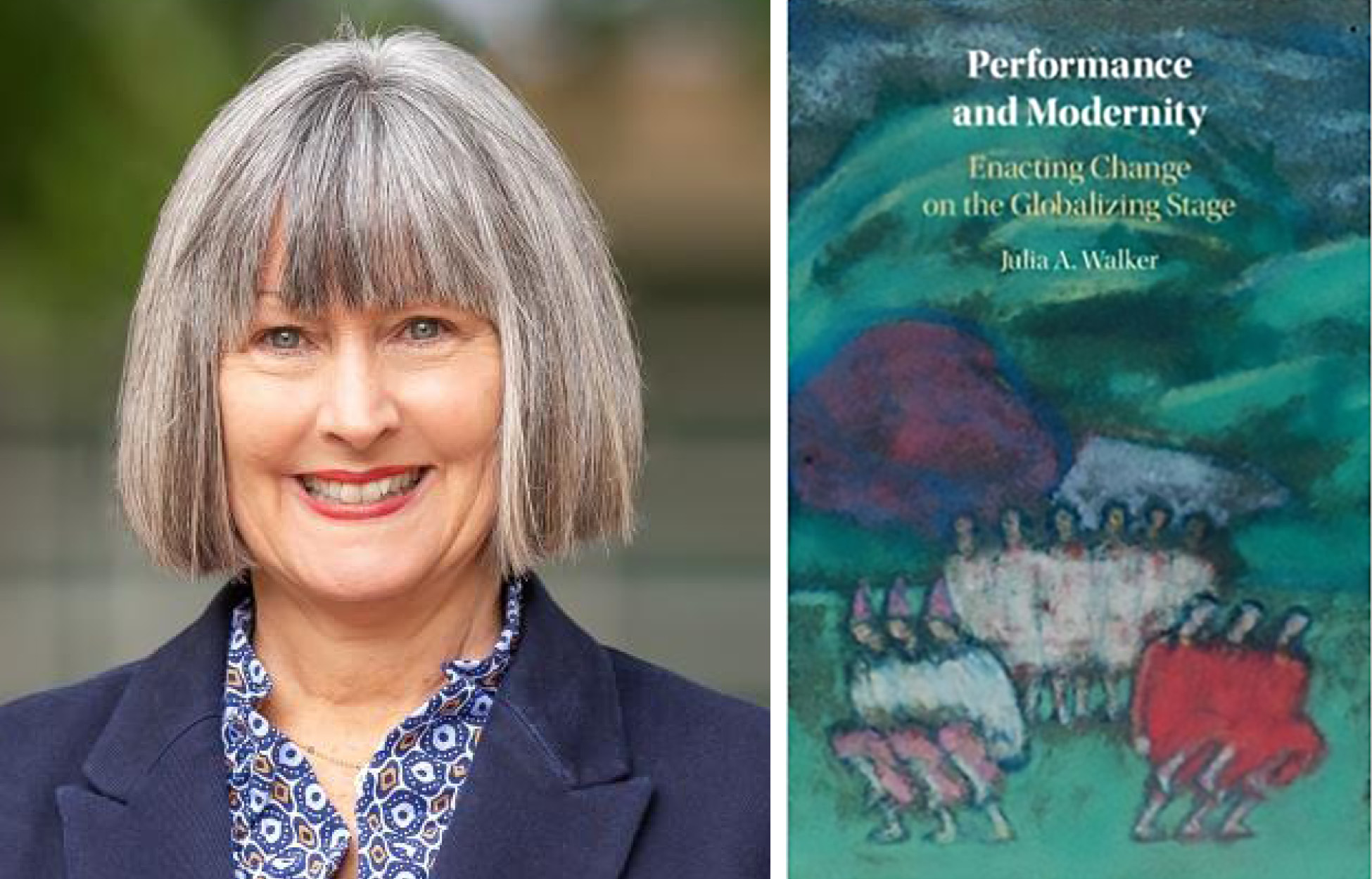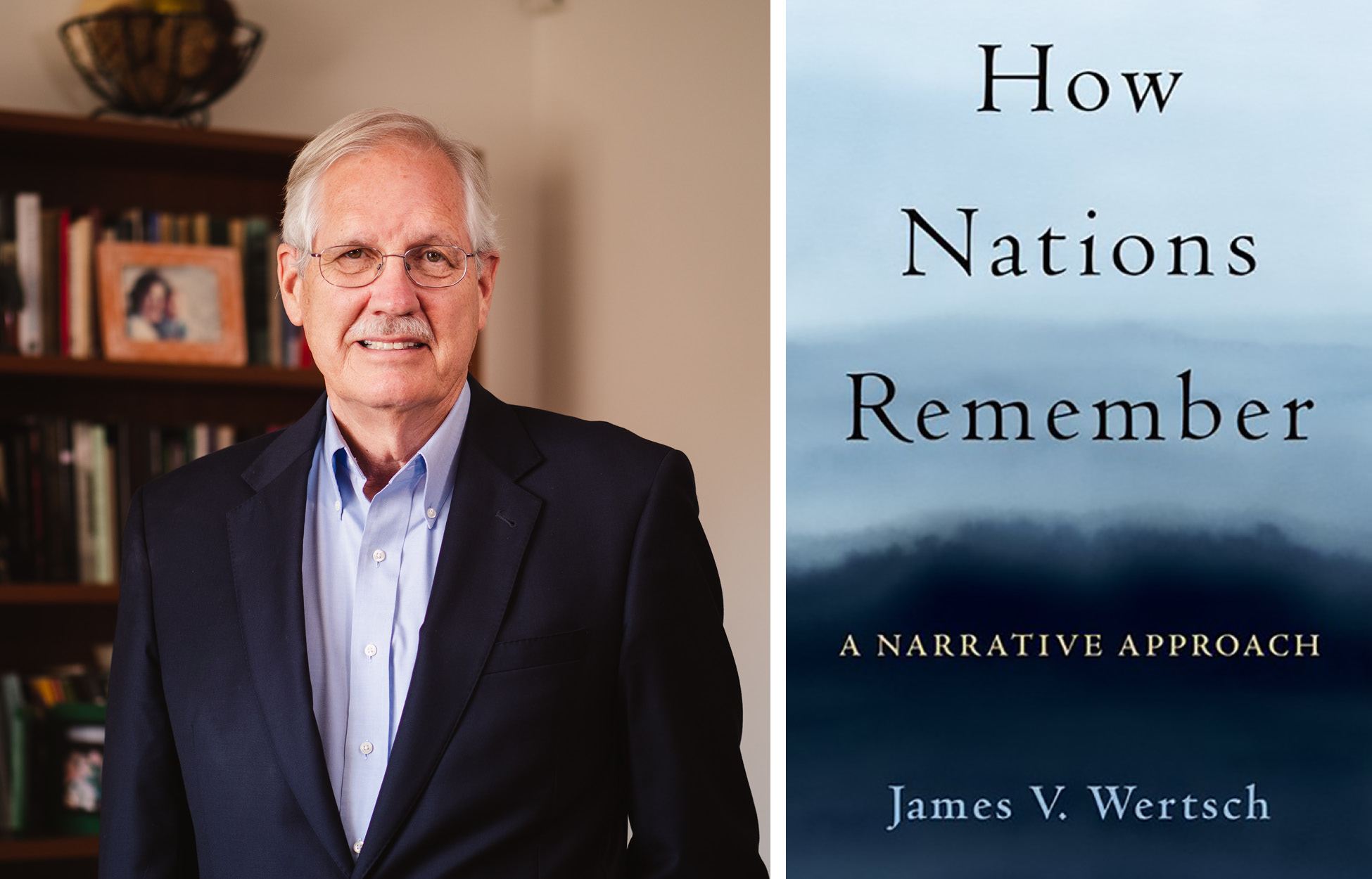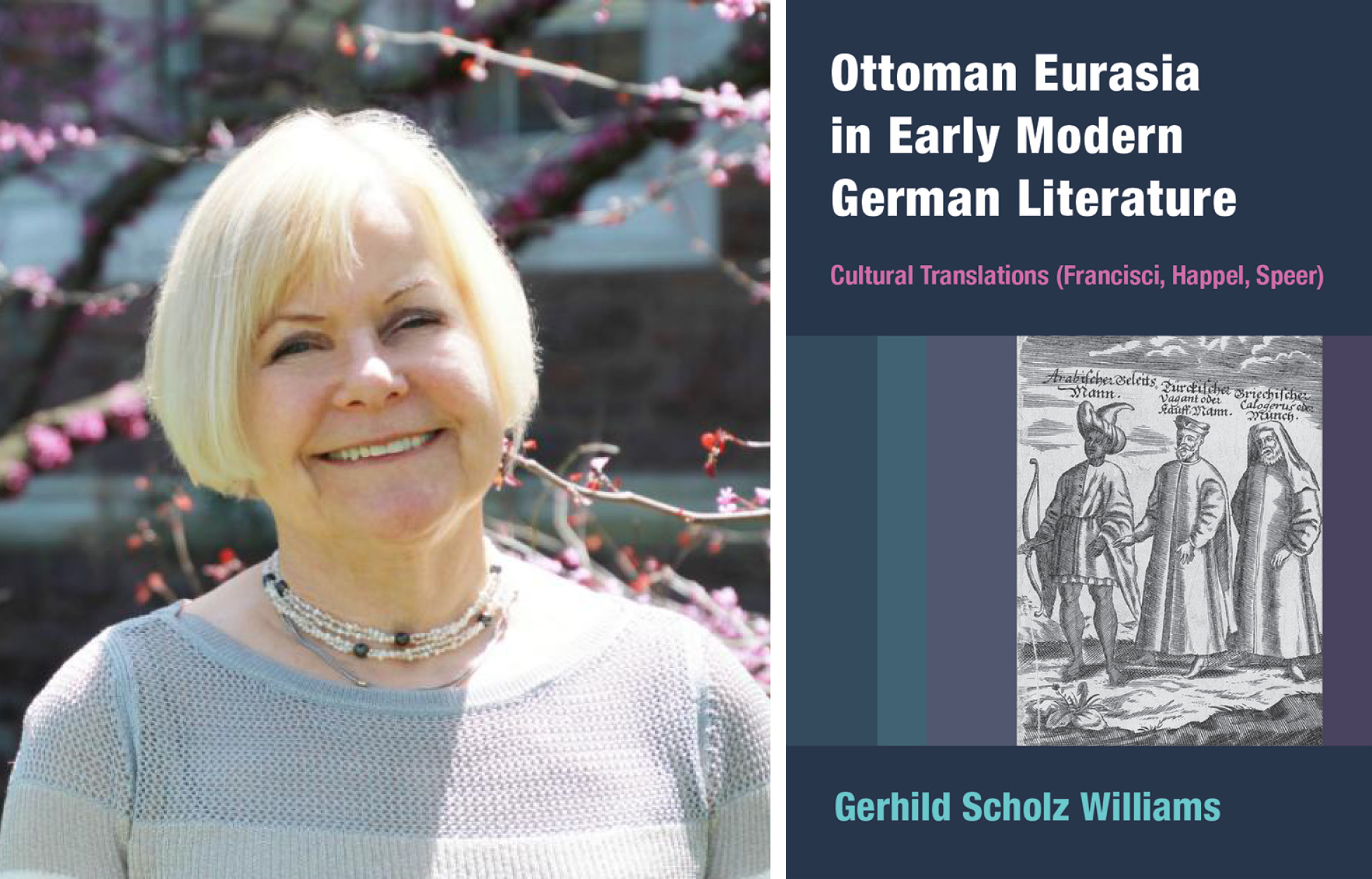Mary Jo Bang
Professor, Department of English
Purgatorio, by Dante Alighieri (translation)
Fellowships: Sabbatical leave
Research sites: I didn’t travel to other states or countries; I did, however, travel far and wide all over the internet doing research on the notes to the cantos.
Number of years spent working on the book: I began working on Purgatorio in 2012, the year I finished translating Inferno, and I finished in 2020 — that’s eight years by the calendar. I did, however, take a two-year break after I’d translated the first three cantos … so work-wise, it was a six-year effort.
When I look back, that two-year break might have been the end of the translation except that a British Dantist asked me to participate in a multi-translator version of Purgatorio. He wanted me to contribute several cantos so I asked him to assign me at least two that I hadn’t yet translated. He gave me cantos 1, 4 and 5, which meant I had to go forward. And once I’d finished canto 5, it felt like I had found my way and would keep going until I finished.
Heather Berg
Assistant Professor, Women, Gender and Sexuality Studies
Porn Work: Sex, Labor, and Late Capitalism
Fellowships: Mellon/ ACLS Dissertation Completion Fellowship, UC Santa Barbara Affiliates Graduate Dissertation Fellowship
Other funding: A strong union contract in graduate school (thanks to UAW Local 2865!); Humanities and Social Sciences Research Grant, UC Santa Barbara; Center for the Humanities Summer Faculty Research Grant
Research sites: Porn sets, workers’ homes, coffee shops and bars (terrible for sound quality and transcription, will not do again!) in Los Angeles, the San Fernando Valley, Las Vegas and New York
Number of years spent working on the book: 7
Doing the labor of writing this book at the same time as I was writing about labor brought up all sorts of connections for me, and porn workers taught me a lot about how to think about my own job. One performer joked that she would write an ethnographic exposé about faculty exploitation when I told her how much I got paid as a lecturer (as much per month as she made in two five-hour scenes).
Patrick Burke
Associate Professor, Department of Music
Tear Down the Walls: White Radicalism and Black Power in 1960s Rock
Fellowships: National Endowment for the Humanities Fellowship, Rock and Roll Hall of Fame Library and Archives Research Fellowship (Center for Popular Music Research, Case Western Reserve University)
Other funding: Sigmund Strochlitz Travel Grant, Thomas J. Dodd Research Center, University of Connecticut
Research sites: Bentley Historical Library (University of Michigan), Thomas J. Dodd Research Center (University of Connecticut), Rock and Roll Hall of Fame Library and Archives (Cleveland, OH), Schomburg Center for Research in Black Culture (New York Public Library), Library for the Performing Arts (New York Public Library), Fales Library (New York University), Gaylord Music Library and Olin Library (WashU)
Number of years spent working on the book: 12, all told
Writing a book is hard (at least for me), but what makes it worthwhile is having the opportunity to share ideas with supportive people like my humanities colleagues at WashU. I particularly appreciate the Center for the Humanities for bringing writers together in an atmosphere of collaboration and encouragement.
Rebecca Copeland
Professor of Japanese Language and Literature, Department of East Asian Languages and Cultures
The Kimono Tattoo
I started the novel with the idea of a translator beginning a translation only to find the literary text spilling over into her real life. That was the only “outline” I had. Everything else just kind of appeared of its own accord.
I spent a month in a cabin my father built in the mountains of eastern Tennessee hammering out the plot. The cabin was extremely rustic, but it had electricity and water and of course lots of quiet. I remember sitting at the table there looking out the window watching birds swoop up over the ridgeline and recalling how I similarly watched pigeons swoop outside my window in Kyoto when I was translating Kirino Natsuo’s novel Grotesque. So, that’s where I started, with my protagonist feeling trapped in her routine life, sitting in a room behind the Kyoto zoo. She watches the flight of birds transform into a white parasol. The parasol belongs to a woman in a gray kimono walking the narrow lane with a mysterious novel. It was almost as if my Tennessee birds carried me through a portal in space and time and delivered me back to Kyoto, where I watched the novel unfold before my eyes. There I was translating Kirino’s Grotesque and seeing play out across the screen of my imagination another translator, translating another novel.
As the sun would set behind the eastern Tennessee hills, I would push back from the table in the cabin, turn off my computer and leave the Eastern Hills (Higashiyama) of Kyoto, long enough to take a walk in the fading light. Here I chased the fragments of the story that were whipping through my mind. Here is where I discovered the name of my protagonist, Ruth Bennett, and here is where the dangerous plot to trick her into a fraudulent translation first began to surface. It all just happened.
I wrote a lot. And the more I wrote, the more complicated the story became. I spent every other summer in Kyoto running down leads and checking my memory of places and food. My main character, Ruth, traveled with me back and forth, advising, admonishing and sometimes sending me on wild-goose chases.
Marie Griffith
John C. Danforth Distinguished Professor, John C. Danforth Center on Religion and Politics
Making the World Over: Confronting Racism, Misogyny, and Xenophobia in U.S. History
Funding: Richard E. Myers Lectures series, University of Virginia and University Baptist Church, Charlottesville
Number of years spent working on the book: 2
This book emerged very differently from every other book I’ve published, as it originated from an invitation to deliver a set of three lectures in Charlottesville, Virginia, in a collaboration between the University of Virginia and University Baptist Church. It is a book of essays aimed to speak to issues of our time, not a scholarly monograph. I decided to take up current controversies over how Americans can tell an honest narrative about U.S. history, one that confronts such realities as slavery, controversies over immigration and misogyny without the usual sugarcoating of school textbooks and much more. The title, Making the World Over, as well as much of the inspiration and the framing of the book, come from James Baldwin: “We made the world we’re living in and we have to make it over.”
John Heil
Professor, Department of Philosophy
Appearance in Reality
Funding and research sites: Institute of Advanced Study at Durham University during Epiphany term 2015, Durham, UK; the Templeton World Charity Foundation, Trinity Term 2017 in Oxford drafted; and the John Simon Guggenheim Memorial Foundation and Washington University academic year 2018–19.
Number of years spent working on the book: Background work on the book began in 2015, continued through 2017, and culminated in 2018-19.
I was stunned to learn that the book is available as an audiobook!
What is Metaphysics?
Funding and research sites: The Australian–American Fulbright Commission during the first half of 2020 at Monash University, Melbourne.
Number of years spent working on the book: The book was written during 2020.
I agreed to write the book because I thought that metaphysics was important enough to merit explicating in a way that would be accessible to any interested reader. [This book was published by Polity Press, Cambridge, UK, and will be published in Arabic by Dar Al Farqad Publishing House, Damascus, Syria.]
First-Order Logic: A Concise Introduction (2nd ed.)
Funding and research sites: The book was originally published as Logic and Language: An Introduction to Logic and the Theory of Linguistic Descriptions by University Press of America in 1979 based on a draft supported by a 1972 NEH Stipend, for research in logic and linguistics, Randolph–Macon Woman’s College, Lynchburg, VA. At the behest of Jones and Bartlett, I rewrote the original (cutting the chapter on linguistic theory) with support from NEH, University of California, Berkeley, 1993–94. The book appeared in 1994. The second edition, a completely rewritten version of its predecessor, was made possible with support from the Australian–American Fulbright Commission during the first half of 2020 at Monash University, Melbourne.
Number of years spent working on the book: The book was begun in 1972, and went through numerous revisions until its original publication in 1979, then many more revisions prior to the publication of a new version in 1994, then, after further revisions the second edition appeared in 2021.
At the time I drafted the original version I was keen to show that there are important connections between linguistic theory and first-order logic. When Jones and Bartlett solicited a new version of the book, I rewrote it, reluctantly removing the material on linguistics, then extensively rewrote it again when Hackett asked to publish a second edition.
Relations
Funding and research sites: The Australian–American Fulbright Commission during the first half of 2020 at Monash University, Melbourne.
Number of years spent working on the book: The book was written during 2020.
I agreed to write the book because I wanted to work out once and for all what I thought about the metaphysics of relations. (Are relations — Barack is taller than Donald, Chicago is north of St. Louis — entities “out there,” are they only in the mind, or is there another option?)
Thomas Keeline
Associate Professor, Department of Classics
Cicero: Pro Milone
Fellowships: Center for the Humanities at Wash U!
Research sites: The library, mostly. :)
Number of years spent working on the book: About 3 years
Most of my research took place in the library, but I did spend a memorable morning in the Roman Forum at the approximate site of the ancient murder trial that I was studying. I was trying to figure out the acoustics of the open-air courtroom by eavesdropping on tourists. Don't worry: I ultimately found a better method, involving digital modeling done by other scholars, to reconstruct the sound properties of the ancient court.
Erin McGlothlin
Professor of German, Department of Germanic Languages and Literatures
Vice Dean of Undergraduate Affairs, College of Arts & Sciences
The Mind of the Holocaust Perpetrator in Fiction and Nonfiction
Fellowships: Center for the Humanities Mid-Career Faculty Fellowship
Research sites: St. Louis; Washington, D.C. (research at the U.S. Holocaust Memorial Museum); Portland (Academic Writing Retreat at Lewis and Clark College)
Number of years spent working on the book: 4 sporadically, 2 years intensively
It’s not easy to spend so many years “inhabiting” the consciousness of men (whether fictional or nonfictional) who played an active role in genocide, and, although I’m very proud of the book and gratified to have written it, I’m not sure I would set out again to engage with this material. But I can say that I’ve learned a lot about how people narrate their own implication in extreme violence, and my work in this area has given me a deeper understanding of the ways in which the human psyche almost reflexively tries to disavow pain caused to others. To put it a different way, working on this book revealed to me new ethical dimensions that I continue to find both fascinating and troubling. I feel very fortunate to be able to think and write about these vexing issues.
Diana Montaño
Assistant Professor, Department of History
Electrifying Mexico: Technology and the Transformation of a Modern City
Fellowships: Sabbatical leave, Center for the Humanities First Book Fellowship (WU)
Research sites: Over a dozen archives, libraries and secondhand bookstores in Mexico City; University of New Mexico-Albuquerque; and digital archives in Mexico, the United States and Germany
Number of years spent working on the book: I began working on Electrifying Mexico in 2015, and I finished in 2020 — that’s five years!
Wrapping up the manuscript during the pandemic was extraordinarily hard — no access to libraries doubled the time to complete endnotes. Then there was the yearlong quest (countless emails, Facebook posts/messages and phone calls to individuals, government agencies and museums) to secure permission for the wood engraving on the book cover. I might be biased, but what a cover!
Leigh Schmidt
Edward Mallinckrodt Distinguished University Professor, John C. Danforth Center on Religion and Politics
The Church of Saint Thomas Paine: A Religious History of American Secularism
Fellowships: NEH Fellowship; National Endowment for the Humanities, Washington D.C.
Other funding: Bentley Historical Library, University of Michigan, Ann Arbor; John C. Danforth Center on Religion and Politics
Research sites: Bentley Historical Library, Chicago History Museum, Institute for Thomas Paine Studies at Iona College, Wisconsin Historical Society, Rare Book and Manuscript Library at Columbia University, Bishopsgate Institute in London, New York Public Library, New-York Historical Society, Library of Congress, American Philosophical Society, Harvard University Archives, Shelby County Historical Society and Special Collections Research Center at Southern Illinois University in Carbondale
Number of years spent working on the book: 5
One chapter is on the circuitous search for the relics of Thomas Paine after his bones were stolen in 1819 and then lost. It is hard to study Paine’s relic-seeking devotees without becoming party to the whispers and mysteries of that long quest. That included a “secret memorandum” I came across in one archive that explained how the initiated would be able to identify Paine’s real skeleton — a secret I then, of course, revealed in the book.
Wolfram Schmidgen
Professor, Department of English
Infinite Variety: Literary Invention, Theology, and the Disorder of Kinds, 1688-1730
The bulk of my book was written during the five years I chaired the English department. I had two internal sabbaticals (one as a reward for serving as chair) to support my work. My main research site was Olin Library, and the total number of years it took me, from first draft to publication date, is eight years.
David Schuman
Senior Lecturer, Department of English
Best Men
Fellowships: I was awarded a MacDowell fellowship and used part of my time at the residency making final edits of Best Men.
Number of years spent working on the book: All in all about 3 years
I wrote a lot of the stories in Best Men during a four-day stay on Lake Michigan and spent the better part of two years revising them and crafting them into a chapbook. I appreciate all the support I get from my friends and colleagues in the writing program and the English department.
Henry I. Schvey
Professor, Performing Arts Department
Blue Song: St. Louis in the Life and Work of Tennessee Williams
Fellowships: Harry Ransom Center Residency (University of Texas, Austin)
Other funding: Center for the Humanities Summer Seed Grant (WU), Center for the Humanities Summer Faculty Research Grant (WU)
Research sites: Tennessee Williams Collection, Harry Ransom Center, University of Texas, Austin; Performing Arts Collections, Rare Book and Manuscript Library, Butler Library, Columbia University; Photographs and Prints Collection, Missouri Historical Society; Harvard Theatre Collection, Houghton Library, Harvard University
Number of years spent working on the book: I would estimate that I spent three years actually writing Blue Song, although my work on Tennessee Williams and St. Louis goes back much farther than this to research for a production of The Glass Menagerie I directed in the Netherlands back in 1981.
I realized that I shared so much with Tennessee Williams, even the fact that we lived at the same exact address in New York City (15 West 72nd Street) for a number of years while I was in high school. I also discovered that Williams and I, in effect, changed places — he left St. Louis (and Washington University!) for Broadway, while I left New York and made my home here. I also discovered while writing the book that (despite his intentions to leave it behind) Williams never put St. Louis behind him; the city — and especially his family — haunted him to the very end of his life.
Alexander Stefaniak
Associate Professor, Department of Music
Becoming Clara Schumann: Performance Strategies and Aesthetics in the Culture of the Musical Canon
Fellowships: Faculty Fellowship, Washington University’s Center for the Humanities (spring 2019)
Other funding: The book received a publication subvention from the American Musicological Society’s John Daverio Fund. (This was especially meaningful for me because Daverio was a scholar of 19th-century music whose work I've admired since grad school.)
Research sites: I traveled to archives in Zwickau (the Robert Schumann Haus), Vienna (the Gesellschaft der Musikfreunde) and London (the British Library and the special collections of the Royal College of Music).
Number of years spent working on the book: 4
I started writing one of the chapters as a standalone article around 2015, so the book has been about six years in the making. One of my favorite parts of researching this book was exploring the complete run of Clara Schumann’s concert programs at the Robert Schumann Haus. I spent several days feeling like I was watching her in real time as she organized her professional life, tried to win over audiences in new cities and learned from her experiences.
Julia Walker
Associate Professor, Department of English; Associate Professor and Chair, Performing Arts Department
Performance and Modernity: Enacting Change on the Globalizing Stage
Fellowship support: Center for the Humanities Faculty Fellowship (fall 2013); Faculty Research Fellowship, American Society for Theatre Research (2015)
Other funding: Center for the Humanities Summer Research Grant (summer 2016)
Research sites: W.E.B. Du Bois Research Library, University of Massachusetts – Amherst; Percy MacKaye Family Papers, Rauner Library, Dartmouth College; Fundação Casa de Rui Barbosa, Rio de Janeiro, Brazil; Toca de Vinícius, Rio de Janeiro, Brazil
Number of years spent writing the book: 12 years (!)
Writing this book was truly an overdue labor of love. Despite a well-meaning senior colleague’s advice “don’t write that book” and positive reports from jurors of national fellowship competitions that nonetheless demurred on the question of “feasibility,” I persisted, even knowing that the book was risky in terms of its ephemeral topic, historical range and geographical scope. My advice to post-tenure colleagues: Write the book you want to write for as long as it takes to find answers to the questions that drive you.
James Wertsch
David R. Francis Distinguished Professor, Department of Anthropology and Global Studies Program
How Nations Remember: A Narrative Approach
Fellowships: No fellowships directly supported this book project, but over the decades, much of what I say in How Nations Remember has benefited from a Fulbright teaching fellowship in Moscow, a semester at the Swedish Collegium for Advanced Study and other periods as a Professor II at the University of Oslo.
In the acknowledgements of the volume I note that spent 2005 to 2018 as director of the McDonnell International Scholars Academy. This kept me busy with administrative matters, but it also provided the opportunity to have endless discussions with the brilliant McDonnell Academy Scholars during their time at Washington University and with colleagues elsewhere in the world, especially at McDonnell Academy partner institutions. At every step along the way, I found myself discussing issues that shaped the views of How Nations Remember.
Other funding: This book is part of a larger effort supported by a grant that Roddy Roediger [Psychological & Brain Sciences] and I received a couple of years ago from the James S. McDonnell Foundation here in St. Louis. The grant has made it possible to convene major scholars of collective memory from around the world to conduct collaborative studies. Roddy and I also organized a 2019 conference on “National Memory in a Time of Populism” that was sponsored by the American Academy of Arts and Sciences and Washington University. Our edited volume with Oxford University Press that grew out of this conference will come out later this year and is titled National Memories: Constructing Identity in Populist Times.
This has all been part of a longstanding effort to build memory studies at WashU. Roddy and I have taught courses and seminars for students ranging from first year undergraduates to graduate students for over a decade, and several other colleagues are working on related issues.
Research sites: PRC, Taiwan, India, Russia, Republic of Georgia, Azerbaijan, Estonia, South Korea
Number of years spent working on the book: My previous sole-authored book came out in 2002, but things slowed down on the writing front when I became director of the McDonnell Academy in 2005. I did manage to continue writing articles, op-eds and chapters and also co-edited volumes where I could try out ideas that appear in How Nations Remember.
Sometimes I felt side-tracked by other responsibilities as I tried to write this book, but I tried to work on it early every morning for over a decade, even for just an hour or so. I also came to realize that everyday encounters could guide my thinking if I could be patient enough to let them challenge and lead my thinking.
Gerhild S. Williams
Barbara Schaps Thomas and David M. Thomas Professor, Department of Germanic Languages and Literatures and Comparative Literature Program
Ottoman Eurasia in Early Modern German Literature: Cultural Translations
Fellowships: Sabbatical leave
Research sites: Herzog August Bibliothek in Wolfenbüttel, Germany
Number of years spent working on the book: 3-4
Like most of my work this book, too, grew out of work on a previous project (Mediating Culture in the 17th-Century German Novel [2015]). I found the whole topic of Ottoman Eurasia fascinating and decided to work on it in greater detail.

